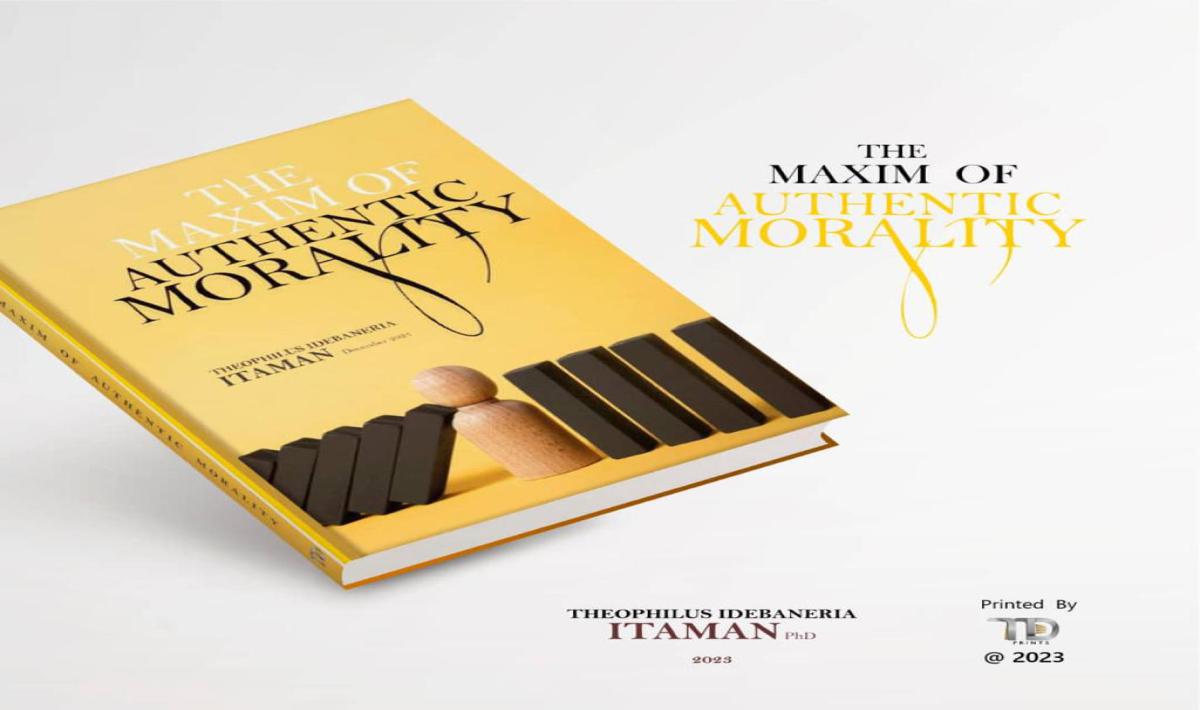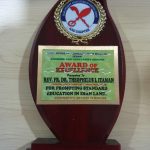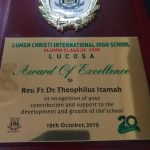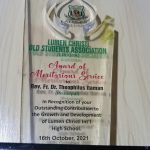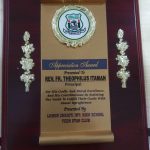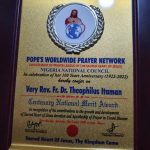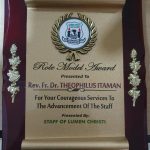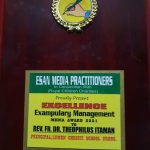Fr. TI’s Bio Rev. Fr. Dr. Theophilus Itaman (Fr. TI) is a Catholic Priest of…
The maxim, “do good and avoid evil” is woven into the very nature of the human person as a moral being. Yet, the question is, what is good? and what is evil? has generated various and, in many cases, contradicting opinions in the sphere of Philosophy, specifically Ethics. The issue in question here is the yardstick for judging human actions to be morally upright or morally wrong. In simple terms, the criteria for moral judgements.
This book, entitled, The Maxim for Authentic Morality, by Theophilus Itaman is a profound and pertinent contribution to the discourse on the criteria for judging moral conduct. Here, he examines the ethical doctrine of Immanuel Kant in his bid to critically arrive at a plausible criterion for authentic moral judgements.
He begins with the examination of Kant’s Categorical Imperative which states that we are to “Act only on the maxim through which you can at the same time will that it should become a universal law.” His second Categorical imperative states that we are to treat people always as an end and never as means to an end. Hence, for Kant, these should form the criteria for authentic moral judgements.
As we would see in the work, there are various strengths as well as weaknesses in the application of Kant’s categorical imperative, even though many of the criticisms pointed out by philosophers is a result of a fundamental misunderstanding of the basis and content of the imperative itself, especially the word “through” contained therein.
This book which is divided into five chapters carefully outlines the basis, influences, and contents of Kant’s ethical theory, especially his principle of universality in the first three chapters. Chapter four contains scholarly reactions with specific attention to the requirement of universality. In Chapter five, the author critically evaluates Kant’s Categorical imperative with specific attention to its feature of universality.
Despite the challenges and shortcomings of the application of Kant’s categorical imperative, the author does a great job of highlighting the essential elements inherent in the ethical doctrine. At the same time, the author clarifies those aspects of the imperative that have been misinterpreted by critics. He points out the important fact that Kant situates the criterion for the determination of morality in the “motive for the action” as against teleological ethical doctrines that base morality of an action on the “consequence of the action”. Also, the feature of stability or consistency intrinsic in the categorical imperative makes it a better criterion for moral judgment as against ethical theories built upon fluctuating hypothetical imperatives.
Finally, the author advocates for a slight modification of Kant’s deontological criterion to accommodate not only the motive of the action but also the nature of the action, the circumstances surrounding the action, and most importantly the involvement of the element of love, in the determination of authentic morality. In other words, the maxim, the consequences of an action and all other moral determinants should be thoroughly considered to avoid unnecessary legalism and stiffness in moral judgements.
Among the works that have been done on Kant’s ethical theory, Dr Theophilus Itaman’s analysis stands out and is most commendable. His particular notion of the moral principle of universality;
is indicative of the philosophical depth of the work and his grasp of the core of the Categorical Imperative. As such, the book is a must-read for all who wish to gain more insight into Kant’s moral thought; all who desire to make an informed moral judgement and wish to lead a moral life.
I recommend this book to all without exception, not only because of its rich contents, which I consider very educative, informative and normative but because of the style and method in presenting this masterpiece, which is espousing this axiom for authentic moral judgement.
Author: Rev. Fr. Theophilus Itaman Ph.D
Year Published: 2023
This book is not available in e-Book.



